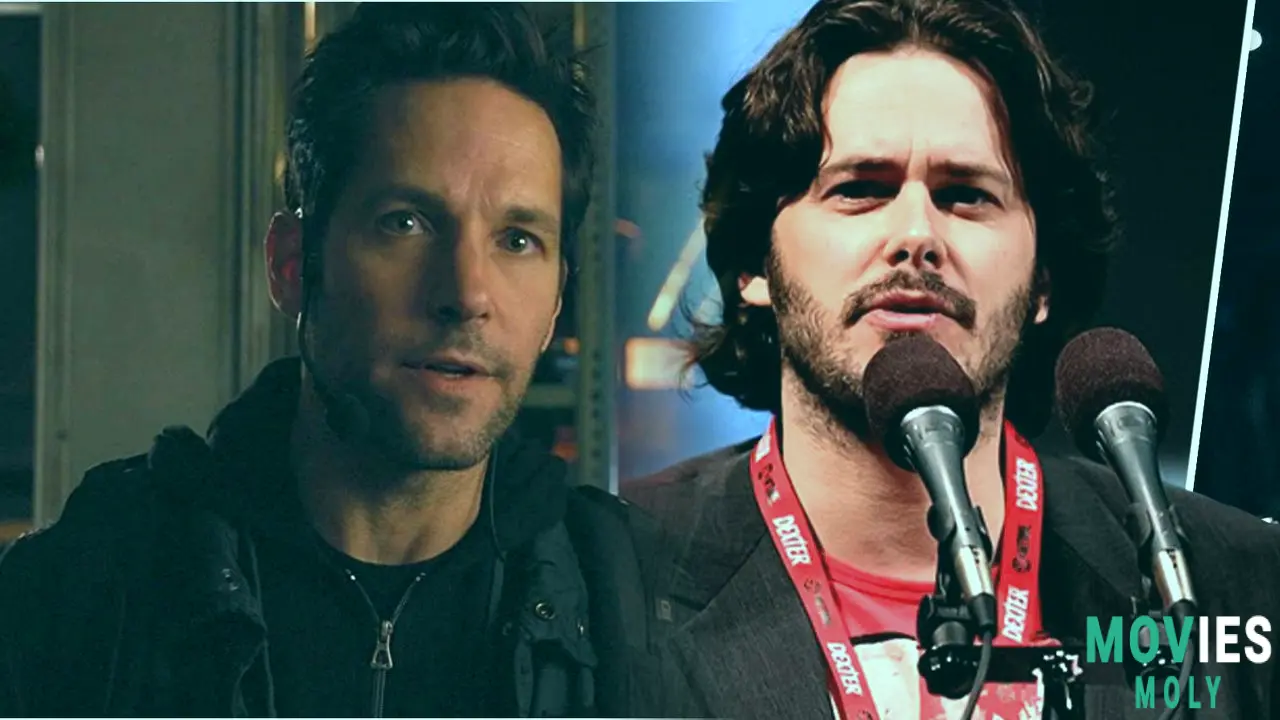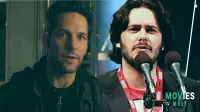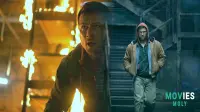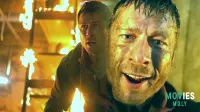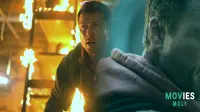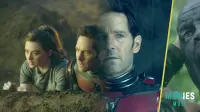Ten years later, director Edgar Wright is finally pulling back the curtain on why he walked away from Marvel's Ant-man, revealing the "real story" behind his departure and his lasting reluctance to return to the superhero genre.
TL;DR: The Essentials on Wright's Ant-Man Departure
- Edgar Wright's original Ant-Man script with Joe Cornish pre-dated Marvel's Iron Man and the established MCU.
- He left in 2014 due to creative differences, specifically the clash between his "left-field heist movie" vision and Marvel's emerging "house style" and continuity.
- Wright remains on a "cape break" from superhero films, having never seen the released Ant-Man movie, and has no regrets about his decision.
Picture this: It's 2006, and the Marvel Cinematic Universe as we know it doesn't exist yet. The idea of Iron Man flying across screens is still a few years off. But in a quiet corner of Hollywood, visionary director Edgar Wright, known for cult hits like Shaun of the Dead, is already meticulously crafting a unique superhero film: Ant-Man.
For many fans, Wright’s departure from the project in May 2014 remains one of the MCU's great "what-ifs." While Peyton Reed eventually stepped in to direct the 2015 film starring Paul Rudd, Wright's version promised a distinct flavor. Now, promoting his latest film, The Running Man, Wright has offered the clearest explanation yet for why he ultimately decided to leave his long-developed project behind.
The Origin Story of Wright's Ant-Man Vision
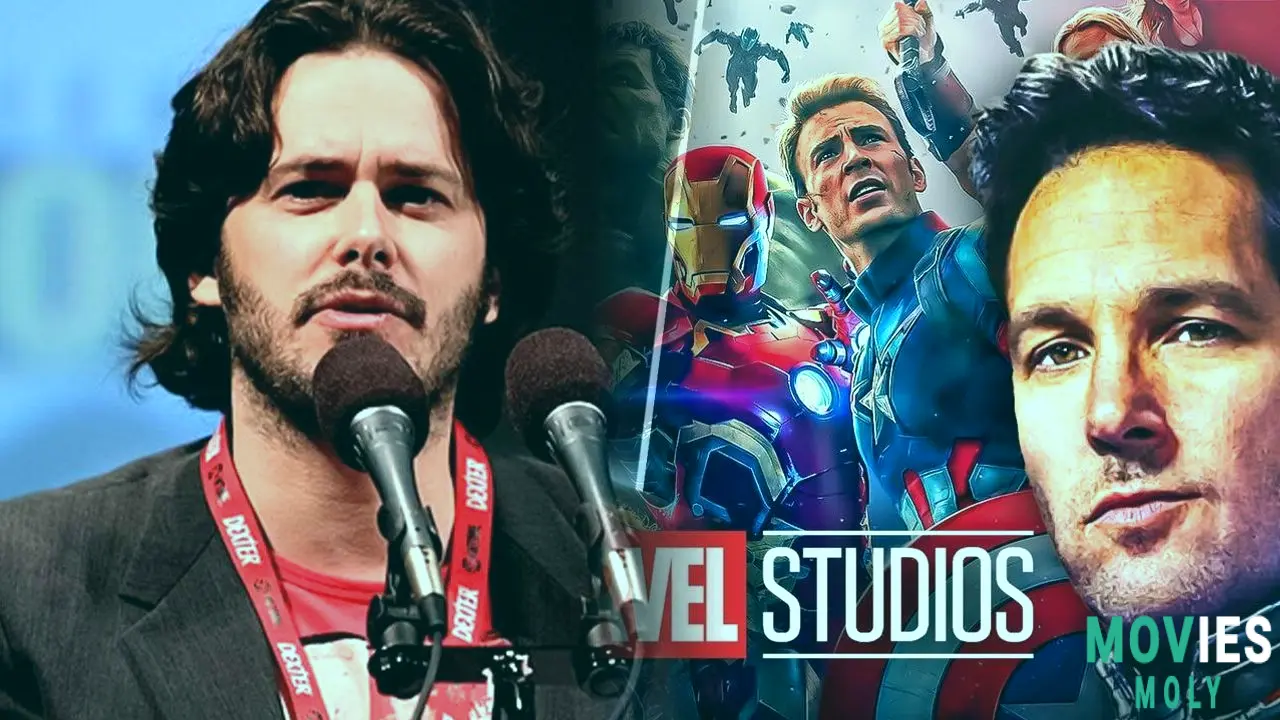
Wright and co-writer Joe Cornish had penned their Ant-Man script years before Marvel Studios launched its shared universe. Their screenplay was completed even before the first Iron Man movie hit theaters in 2008. Wright was genuinely excited by the prospect of bringing his own unique spin to the character, envisioning a "left-field heist movie" that leaned into a "hard-boiled story of a thief in noir," complete with a "special effects bonanza" and a blend of genres.
He was originally brought in by Marvel in 2006, nearly a decade before the movie's eventual release, with the intention that he would write and helm the film. This early involvement suggests a period when Marvel was more open to individual directorial voices, before the massive success of their interconnected universe truly took hold.
When the House Style Clashed with Individual Vision
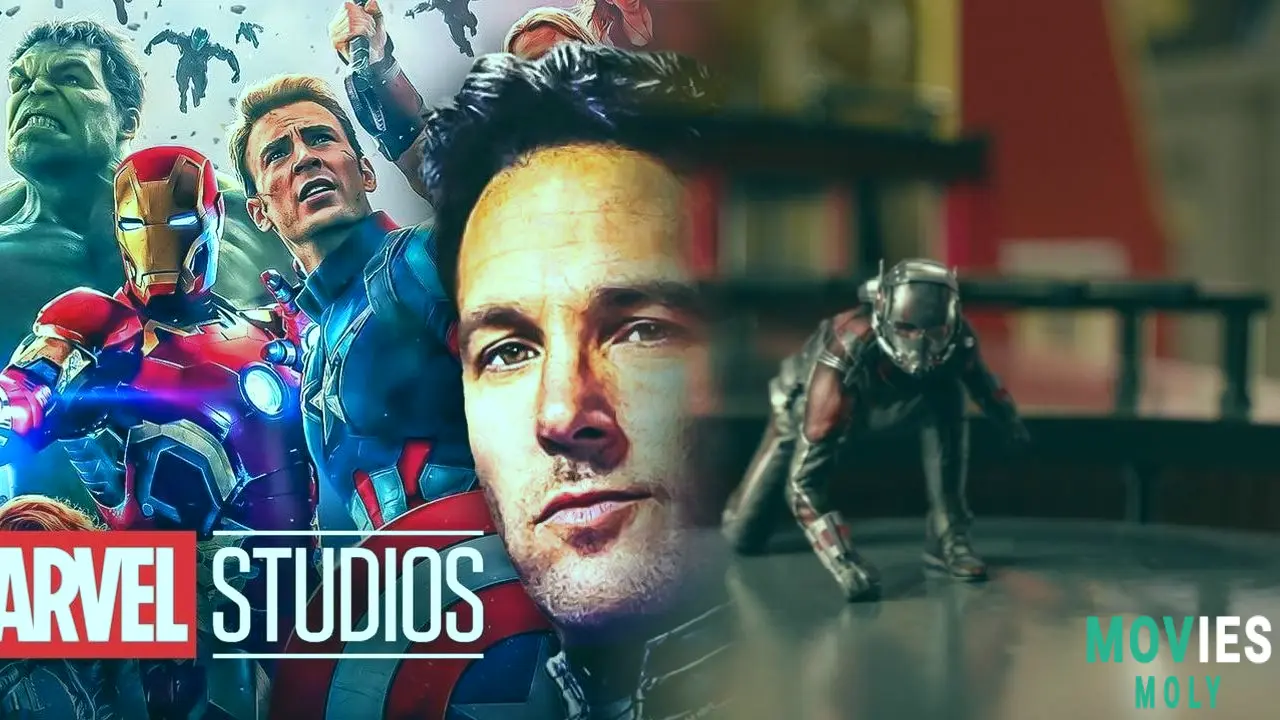
The landscape of superhero cinema changed dramatically in the years Wright was developing his project. As he put it, "between pitching the idea and doing it, the whole franchise had blown up" after the unprecedented success of The Avengers. This meant Marvel Studios had established a clear "house style" — a recognizable tone, visual aesthetic, and, crucially, a need for continuity that would tie every film into the larger MCU narrative.
Wright explained this fundamental disconnect during a Reddit AMA. He stated, "Joe Cornish and I had written the script long before Marvel became as huge as it did... But when we came to make it in 2014 – they had an established house style, a way of working, and a continuity that didn’t really fit with the more left-field heist movie we’d written." Source: [Brandon Schreur, "Ant-Man: Edgar Wright Tells ‘Real Story’ of Why He Left MCU Movie," November 12, 2025]
This "house style" meant that Marvel increasingly prioritized interconnectivity, ensuring characters and plot points could easily weave into future team-ups. This approach, while commercially successful, often limited a director's ability to tell a standalone story in their own distinctive voice. Wright’s version of Ant-Man, for instance, reportedly "didn't want any other Marvel characters in the film," a detail confirmed by Ant-Man editor Colby Parker Jr. in an August 2023 interview. Source: [Aeron Mer Eclarinal, "The MCU’s Biggest Creative Mistake Happened Because Of The Avengers’ Success, Reveals Original Ant-Man Director Edgar Wright," November 07, 2025]
"Short answer. Joe Cornish and I had written the script long before Marvel became as huge as it did, our screenplay existed before Iron Man came out. But when we came to make it in 2014 – they had an established house style, a way of working, and a continuity that didn’t really fit with the more left-field heist movie we’d written. So I knew it was time to leave, because our draft we loved was fading away, and I thought it better if someone else did it. I have never seen the film to this day, but don’t regret leaving."
— Edgar Wright, Reddit AMA (via Brandon Schreur, "Ant-Man: Edgar Wright Tells ‘Real Story’ of Why He Left MCU Movie," November 12, 2025)The ultimate breaking point came when Marvel executives reportedly wanted to do a draft of the screenplay without Wright's oversight. For an auteur like Wright, who had written all his previous films, this was a significant blow. He felt he was "suddenly becoming a director for hire," which left him "less emotionally invested" and questioning his purpose on the project. Source: [FandomWire, "The MCU’s Biggest What If: Edgar Wright’s Ant-Man," Undated]
Still on a "Cape Break" After More Than a Decade
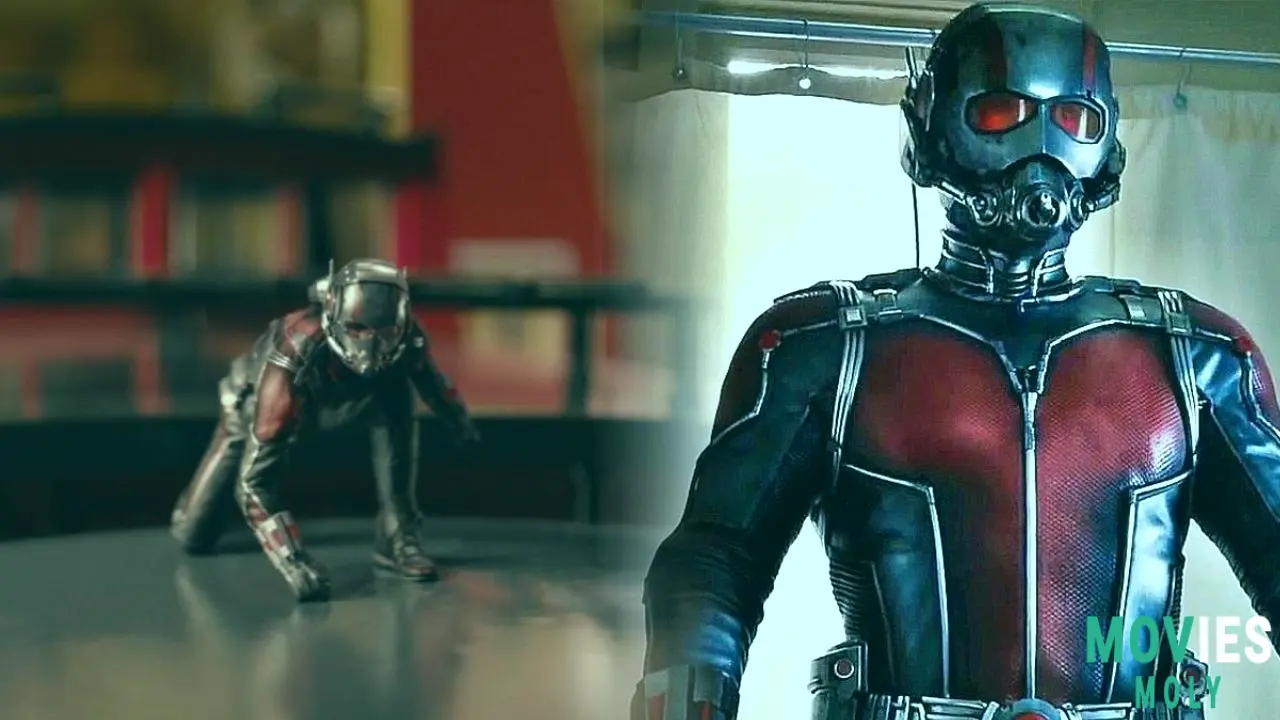
It's been over a decade since Wright walked away from Ant-Man, and his stance on superhero Movies hasn't softened. In a recent interview with The Playlist, Wright confirmed he’s still on what he calls a "cape break." He playfully quipped, "You’re not still losing sleep over that, are you? I didn’t regret my decision to leave at all." Source: [Evolve Editors, "The Running Man’s Edgar Wright on Why He’s Still on a Superhero Movie Break," November 6, 2025]
He further elaborated on why the genre no longer appeals to him: "Several years afterwards, I’d get scripts saying, ‘This is a revisionist superhero movie!’ And I’d think, aren’t they all revisionist now? It would be more groundbreaking to make a straight-up one. So no, 12 years later, I’m still on what I call a ‘cape break.’" Source: [Evolve Editors, "The Running Man’s Edgar Wright on Why He’s Still on a Superhero Movie Break," November 6, 2025]
This sentiment highlights Wright’s enduring commitment to genuine genre subversion and originality. His filmography, from the zombie comedy Shaun of the Dead to the musical action of Baby Driver and the psychological horror of Last Night in Soho, thrives on playing with established tropes in unexpected ways. If every superhero movie claims to be "revisionist," the appeal for a director like Wright diminishes.
Considering the Trade-offs and Counterarguments
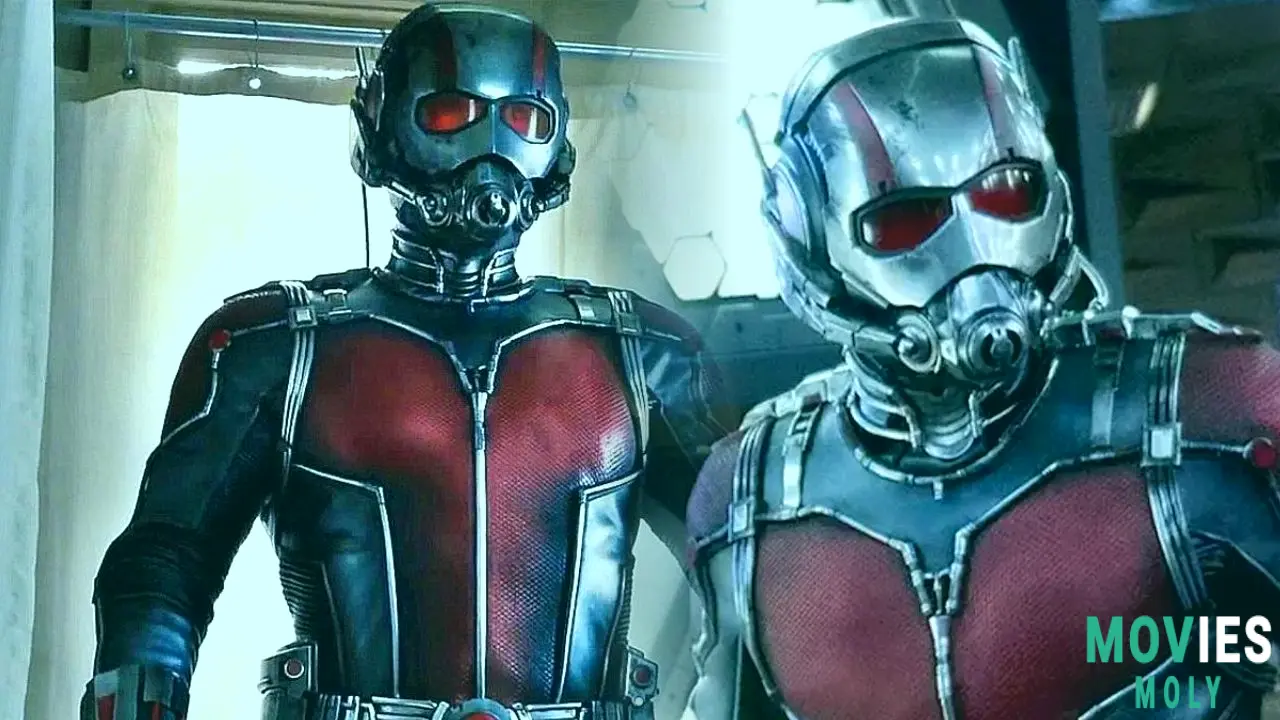
It’s easy to lament the loss of Edgar Wright's Ant-Man, especially for fans of his distinctive style. However, the Ant-Man film released in 2015, directed by Peyton Reed and starring Paul Rudd, was still a critical and commercial success. It holds an 83% approval rating from critics on Rotten Tomatoes and an 85% audience score, with an IMDb rating of 7.2. Source: [FandomWire, "The MCU’s Biggest What If: Edgar Wright’s Ant-Man," Undated]
Some could argue that Marvel's insistence on a cohesive "house style" was precisely what allowed the MCU to flourish and become the dominant cinematic force it is today. By ensuring every film broadly fit into the larger narrative, they cultivated an interconnected universe that kept audiences invested for over a decade. The argument is that this unified approach was a necessary trade-off for the unprecedented success and interconnected storytelling that followed.
However, this strategy isn't without its long-term costs. Many critics and fans have pointed to a growing sense of "superhero fatigue," suggesting that the lack of distinct individuality and unique visual identity across numerous MCU releases has made some films feel forgettable. While Marvel's approach cemented its box office dominance in the 2010s, the "lack of any real substance" beyond interconnectivity has led to "box office misses and harsh reviews" in the post-Avengers: Endgame era. Source: [Aeron Mer Eclarinal, "The MCU’s Biggest Creative Mistake Happened Because Of The Avengers’ Success, Reveals Original Ant-Man Director Edgar Wright," November 07, 2025]
When a Director's Vision Meets a Studio's Brand: A Plausible Scenario
Imagine a talented indie filmmaker, renowned for their gritty, character-driven dramas, being approached by a massive franchise studio. The studio loves their past work and wants them to direct a new installment in a beloved, family-friendly adventure series. The director enthusiastically develops a script that blends their signature realism with the franchise's fantastical elements, creating something truly fresh and unexpected.
However, as production nears, the studio, concerned about maintaining brand consistency and appealing to its broad audience, starts pushing for changes. They want more established characters, less ambiguity, and a lighter tone to align with previous successful entries. The director, seeing their unique vision "fading away" and being asked to compromise their artistic integrity, faces a stark choice: conform to become a "director for hire" or walk away. This hypothetical scenario perfectly mirrors the core dilemma Edgar Wright faced with Ant-Man.
Wright's Path Beyond Superheroes
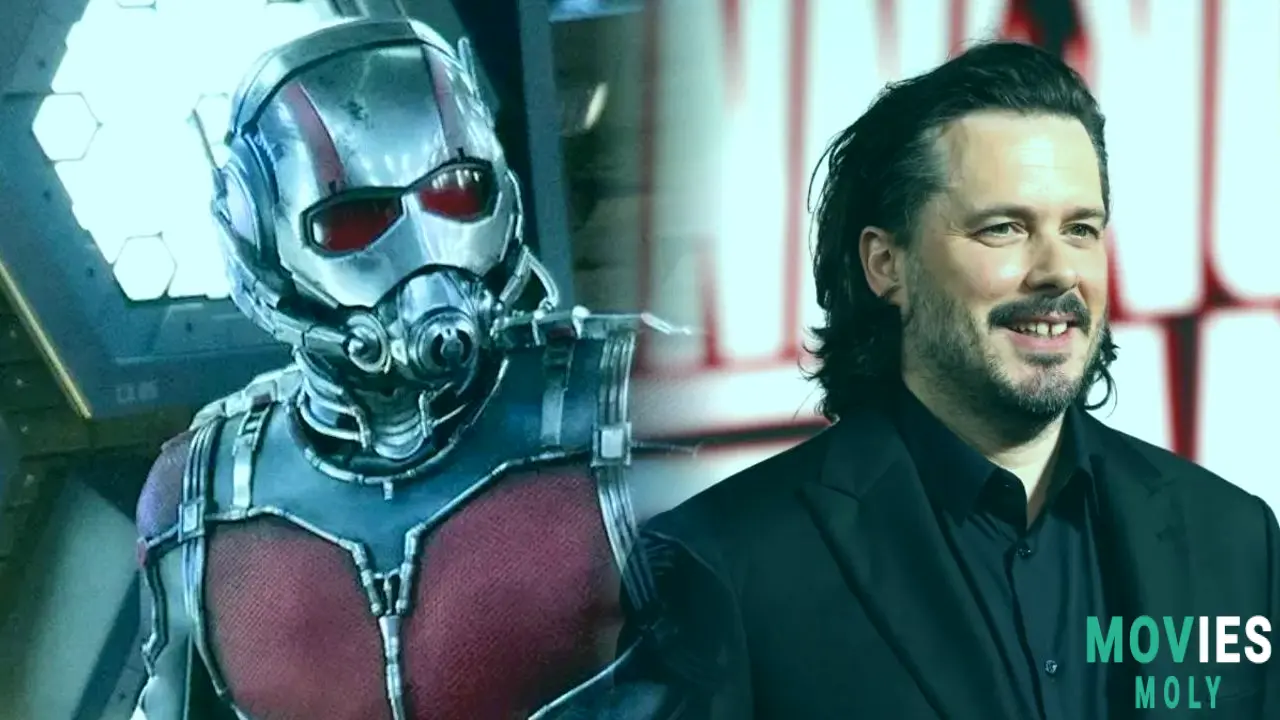
While superhero fans might regret the road not taken, Wright has clearly thrived on his own path. After his Ant-Man departure, he delivered the critically acclaimed action-crime film Baby Driver, followed by the documentary The Sparks Brothers and the psychological horror Last Night in Soho, both released in 2021.
His next major project is an adaptation of Stephen King’s classic novel The Running Man, set to open in United States theaters on November 14, 2025. This action-thriller boasts an impressive cast including Glen Powell, Josh Brolin, Colman Domingo, and William H. Macy. Wright's move to adapt King, a master of dark and unconventional storytelling, further underscores his preference for projects that allow his distinctive voice to shine without compromise.
Meanwhile, the MCU continues its journey, with upcoming projects like Avengers: Doomsday (due December 18, 2026) and the VisionQuest series. It's a universe that, for now, remains firmly outside Edgar Wright's directorial scope.
Practical Takeaways for Filmmakers and Fans- Artistic Vision vs. Franchise Mandate: The Edgar Wright/Ant-Man saga is a prime example of the ongoing tension between a director's unique artistic vision and a studio's need for franchise consistency and brand alignment.
- No Regrets for Creative Freedom: Wright's lack of regret highlights that for some filmmakers, creative autonomy is more valuable than directing a blockbuster in a mega-franchise.
- The MCU's Enduring Challenge: While the "house style" built the MCU, the conversation around "superhero fatigue" suggests that incorporating more diverse directorial voices might be key to its sustained creative vitality.
- Don't Hold Your Breath for a "Cape Break" End: Given his current comments, it's safe to say Edgar Wright won't be helming a Marvel or DC movie anytime soon; he's more interested in original stories on his own terms.
- Brandon Schreur, "Ant-Man: Edgar Wright Tells ‘Real Story’ of Why He Left MCU Movie," https://www.comingsoon.net/movies/news/1498642-ant-man-edgar-wright-real-story-why-he-left-mcu-movie (November 12, 2025)
- Molly Edwards, "Shaun of the Dead director Edgar Wright has talked about why he never ended up making Ant-Man," https://www.gamesradar.com/edgar-wright-ant-man-explained-why-not/ (Undated)
- Aeron Mer Eclarinal, "The MCU’s Biggest Creative Mistake Happened Because Of The Avengers’ Success, Reveals Original Ant-Man Director Edgar Wright," https://thedirect.com/article/ant-man-edgar-wright-the-avengers-success-creative-mistake (November 07, 2025)
- Anthony Singletary, "Edgar Wright Reveals Scott Lang Was A Bad Guy In His Original ‘Ant-Man’ Pitch," https://comicbook.com/marvel/news/edgar-wright-ant-man-original-pitch-details-scott-lang-bad-guy/ (November 12, 2025)
- FandomWire, "The MCU’s Biggest What If: Edgar Wright’s Ant-Man," https://fandomwire.com/the-mcu-biggest-what-if-edgar-wrights-ant-man/ (Undated)
- Evolve Editors, "The Running Man’s Edgar Wright on Why He’s Still on a Superhero Movie Break," https://www.comingsoon.net/movies/news/1497914-the-running-mans-edgar-wright-on-why-hes-still-on-a-superhero-movie-break (November 6, 2025)
- Jessica Fisher, "Edgar Wright Talks About Walking Away From ANT-MAN and Says He's Still on a 'Cape Break'," https://geektyrant.com/news/edgar-wright-talks-about-walking-away-from-ant-man-and-says-hes-still-on-a-cape-break (Undated)

